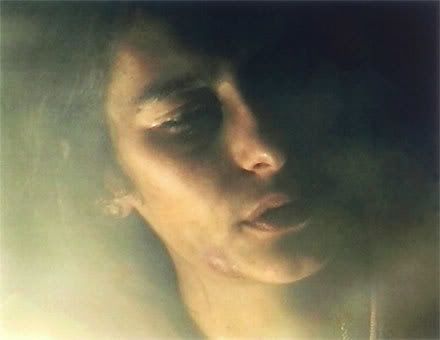Iranian Cinema and Democracy
Film - Iranian Directors Like Abbas Kiarostami Foreshadowed Current Tension - NYTimes.com:
I watched Kiarostami's Taste of Cherry last night -- fantastic -- and today noticed this in the Times...

"No national cinema is easily summarized, and movies are always an imperfect window on the world. But to watch, say, “The Apple” (1998), Ms. Makhmalbaf’s first film; “The Circle” (2000), “Crimson Gold” (2003) and “Offside” (2006) by Mr. Panahi; the more tenderly sentimental films of Majid Majidi (including “The Color of Paradise” and “Baran”); and Bahman Ghobadi’s tough, poetic films about Kurdistan — and this is a very partial list — is to encounter images and stories that add depth and meaning to the raw videos and tweets of recent weeks. You see class divisions, the cruelty of the state, the oppression of women and their ways of resisting it, traditions of generosity and hospitality, and above all a passion for argument.
A typical Iranian film can feel like one long series of family quarrels — a clatter of competing opinions and interests that is at once contentious and courteous, violent and fraternal, but that never seems to end. Democracy can feel that way, too, and in that respect the Iranian cinema of recent years offers a foreshadowing of what is happening now, beyond the screen."
I watched Kiarostami's Taste of Cherry last night -- fantastic -- and today noticed this in the Times...

"No national cinema is easily summarized, and movies are always an imperfect window on the world. But to watch, say, “The Apple” (1998), Ms. Makhmalbaf’s first film; “The Circle” (2000), “Crimson Gold” (2003) and “Offside” (2006) by Mr. Panahi; the more tenderly sentimental films of Majid Majidi (including “The Color of Paradise” and “Baran”); and Bahman Ghobadi’s tough, poetic films about Kurdistan — and this is a very partial list — is to encounter images and stories that add depth and meaning to the raw videos and tweets of recent weeks. You see class divisions, the cruelty of the state, the oppression of women and their ways of resisting it, traditions of generosity and hospitality, and above all a passion for argument.
A typical Iranian film can feel like one long series of family quarrels — a clatter of competing opinions and interests that is at once contentious and courteous, violent and fraternal, but that never seems to end. Democracy can feel that way, too, and in that respect the Iranian cinema of recent years offers a foreshadowing of what is happening now, beyond the screen."






